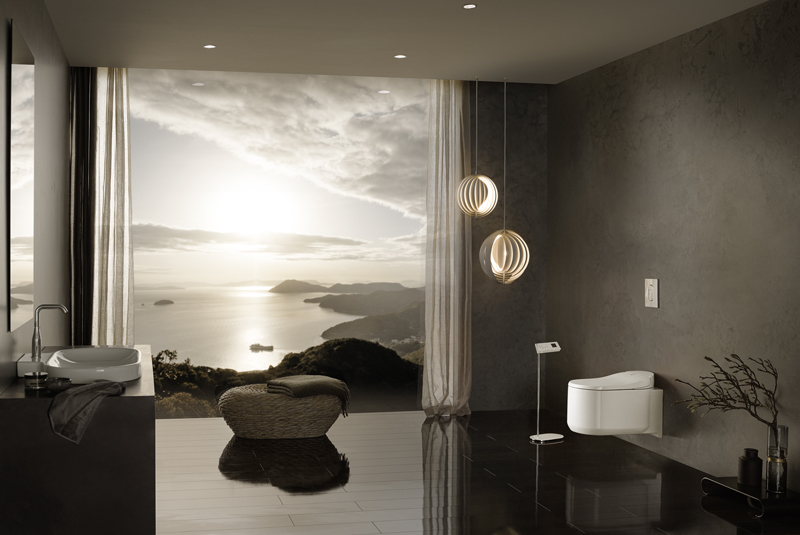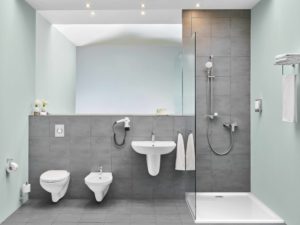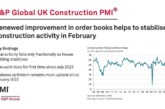
Considering the UK’s ‘ageing population’, Grohe talks to PBM about accessible design and the notion of the multi-generational bathroom.
Accessible design in the bathroom can make simple tasks that are usually taken for granted by many much easier for the country’s ageing population. Accordingly, greater thought must be given to ensuring the nation’s homes can cope with both the needs of today’s older generations and also ‘futureproofing’ them to ensure individuals can remain in them for longer as they age.
Concepts such as ‘multi-generational’ living come into play when one considers the wider context — for example, the recent government report ‘Future of an Ageing Population’ detailed how the demographics of the UK are shifting and projected that nearly one in seven people will be over 75 years old by 2040.
The report highlights the growing significance and importance of the home in later life, revealing: “Suitable housing can significantly improve life in older age, while unsuitable housing can be the source of multiple problems and costs. Poor quality housing costs the NHS an estimated £2.5 billion per year. Homes will be increasingly used as places of work and care.
“Appropriately designed housing, that can adapt to people’s changing needs as they age, has a number of benefits. These benefits include reducing demand on health and care services, and enabling individuals to work more flexibly in later life.”
Extensive R&D and investment from Grohe has allowed the manufacturer to look at ways in which bathroom design can improve quality of life. Raj Mistry, UK Marketing Director, said: “Many people planning a bathroom today want to take their future needs and requirements into account without compromising on contemporary design.
“The bathroom is particularly vital to old age, as it is the room where people perhaps most want to be self-sufficient to preserve dignity and save themselves from feelings of embarrassment. At the same time, it is an essential room in the home in order to maintain high self-hygiene levels (and) there are a number of ways that bathroom design can be structured to cope with the demands of ageing.”
Having conducted “extensive research”, Grohe’s findings suggest that making “smart use of space” is critical. The firm says that a sensible room layout is instrumental in maximising the user-friendliness of the bathroom and should “avoid narrow access ways, provide sufficient turning space for wheelchairs and walkers, while placing basins and WCs in easily accessible spots — for example, a lower wall hung basin to allow access for wheelchair users.”
It adds that cleverly placed grab bars in the toilet and shower area, plus a seat in the bath or shower, can help to give people confidence to use the bathroom independently.
Indeed, an important contribution to the multi-generational bathroom are specifically designed and engineered products that combine elevated levels of comfort, ergonomics, user safety and longevity. Products-wise, safety features such as thermostatic shower controls to balance fluctuations in water temperature and pressure as well as technology — for example, Grohe CoolTouch which prevents the fitting’s body and other objects such as hand showers becoming excessively hot on the surface — should be a key consideration.
Product control is also an important factor to consider, and technology has an increasing part to play. Grohe says that infra-red touchless taps provide a great solution, as the water flow simply starts and stops when the sensor detects hand movement, whilst they also often come with a timer which automatically stops the water flow after a desired length of time to reduce wastage.
This comes into sharper focus when we consider the WC. Steadily growing in popularity in the UK, shower toilets use advanced technologies to minimise maintenance and cleaning, offering a combination of thorough body care, ultimate hygiene and personalised comfort. A shower toilet such as the Grohe Sensia Arena provides a solution for the multi-generational bathroom with its natural, water-only cleansing process and its wide array of customisable functions.
An automatic shower toilet combines toilet, bidet and warm air drying in one unit which means no strenuous movement is required for those with reduced mobility. In turn, this makes going to the toilet a discrete, hygienic and hassle-free pursuit.
Planning a bathroom to meet future needs no longer means compromising on style and design. And as the population ages, it is more important than ever to provide solutions that meet the needs of older clients. Through the variety of products available, merchants can provide their customers with a wide choice to best suit their lifestyle and needs to help them plan for the future — creating a stylish yet functional home suitable for all ages.
For more information on Grohe’s range of products and services, visit www.grohe.co.uk.
Tray time
Whether it’s a new build or a bathroom renovation project, the demand for luxurious, ergonomic and modern spa bathrooms continues to increase. As such, seven stylish models of shower tray have been launched by Grohe, all said to feature a slim and minimalist design to ensure “consistent harmony of form and functionality”.
With their depth of only three centimetres, the low profile trays are said to be an especially “sustainable” choice, as accessibility is guaranteed for all users and therefore futureproofed for years to come. The choice of rectangular or square models work to adapt to all designs and with sizes from 80 by 80cm up to 90 by 140cm, the manufacturer asserts that the selection of seven different dimensions will ensure there is a model suitable for every bathroom space.
The shower trays are also designed to be a ‘PerfectMatch’ in terms of the supplier’s wider range. They not only match with any of the company’s three sanitaryware design lines — Bau, Euro and Cube — but can also be optimally combined with its other bathroom accessories too.










